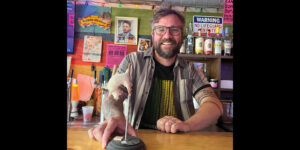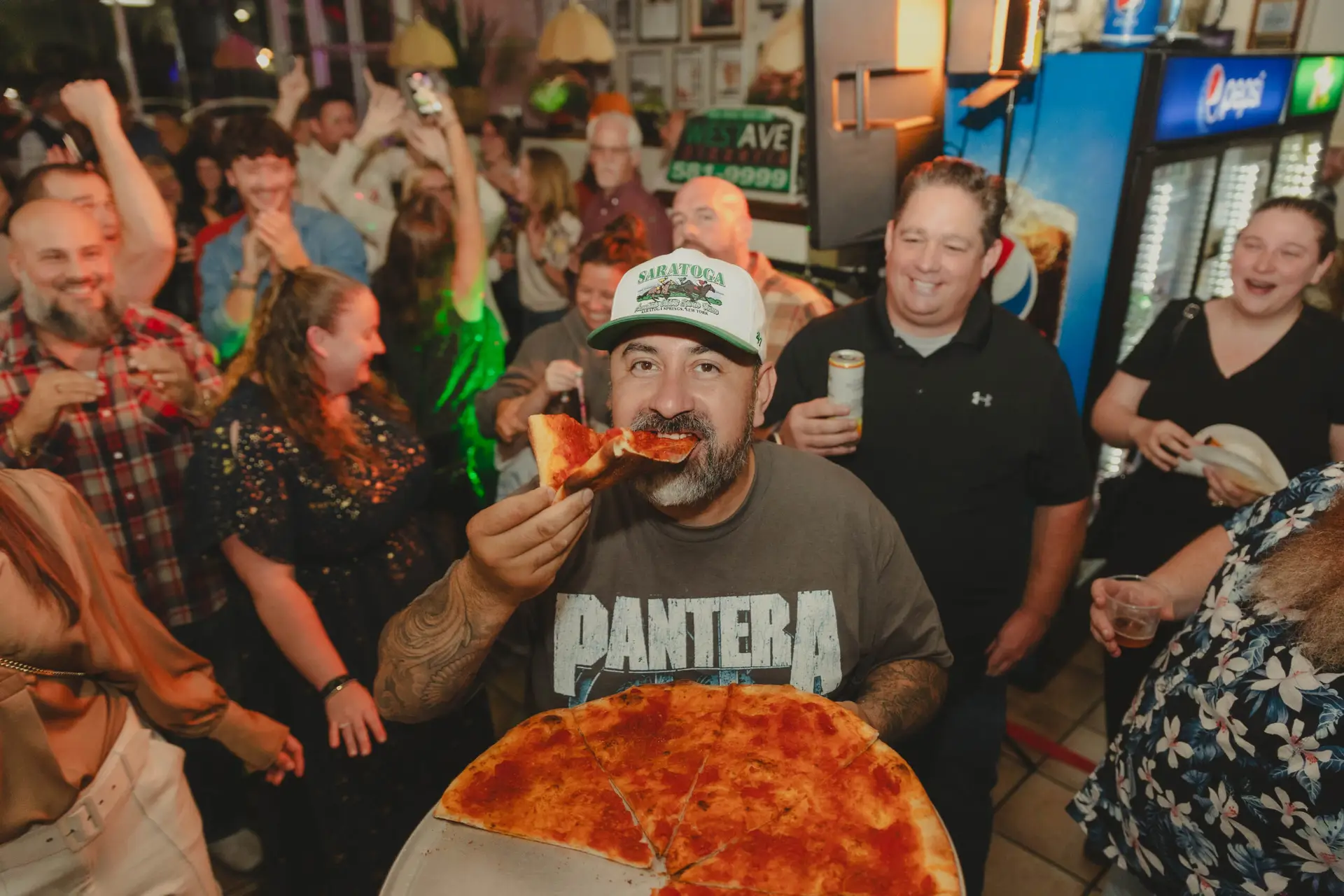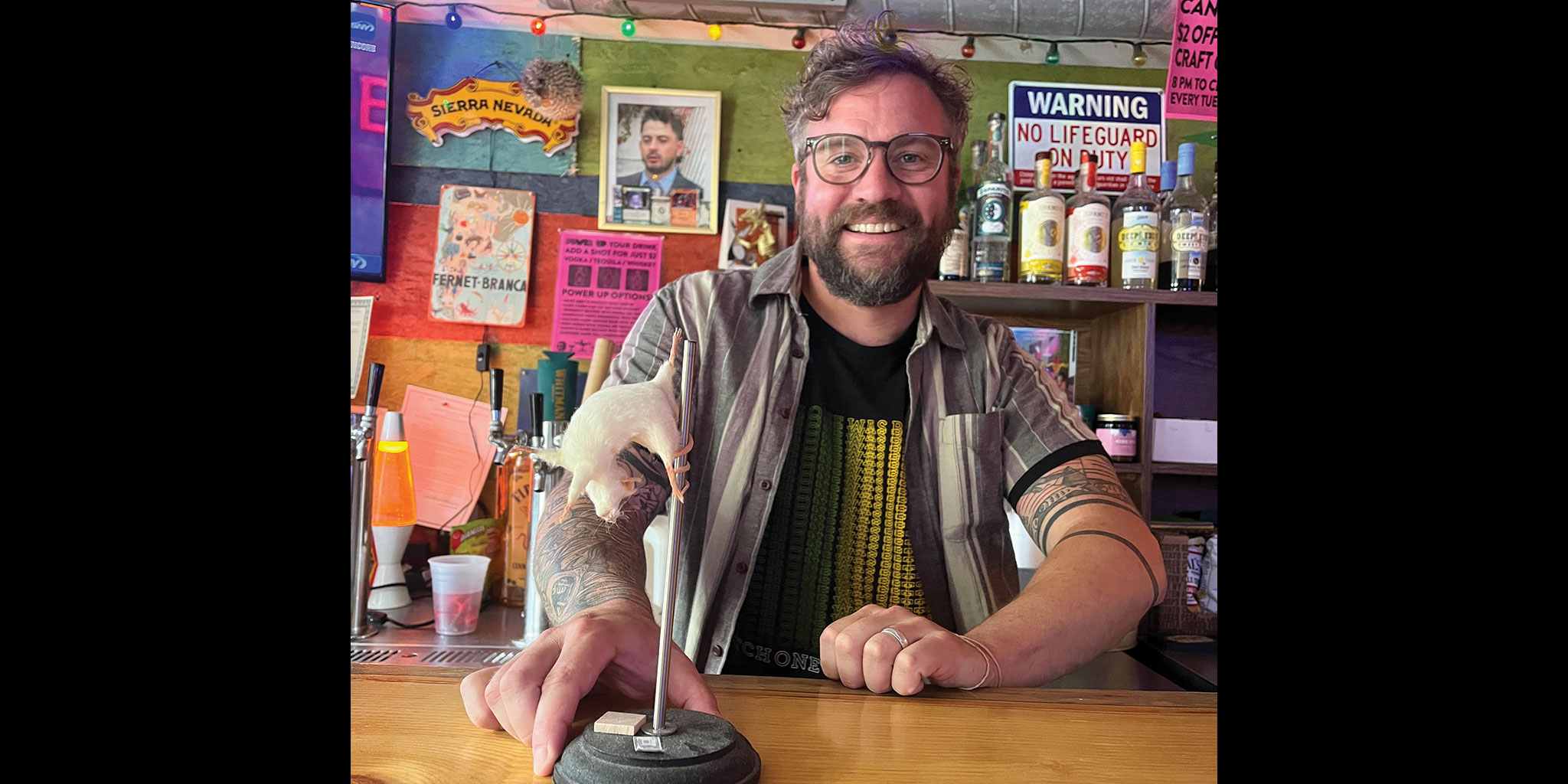Editor’s Note: In her semi-regular column for Saratoga Living, correspondent and homeless advocate Lisa Mitzen has introduced Saratogians to a number of faces of the city’s homeless community. In Mitzen’s latest post, get to know Chris, who spent 25 years as a roadie touring with well-known rock bands, before ending up homeless in Saratoga Springs.
The youngest of three, Chris was born and raised in Austin, TX. Around the age of eight his parents divorced (apparently, his father had a drinking problem and a wandering eye). So, he and his siblings wound up in their mother’s care. She worked two jobs and focused on raising them as best she could. By 16, Chris was drinking pretty heavily, but he still managed to graduate from high school and went on to attend college. After graduation, there were no “desk jobs” available in his field, so Chris landed a gig as a roadie—or “set decorator,” as he likes to call it. This hands-on job took him all over the country, touring with well-known rock bands such as AC/DC and Tom Petty, to name a few. “You name them, I’ve toured with them,” Chris says with a smile. During his 25-year career on the road, he worked hard and partied even harder, very much living the rock star lifestyle. He saw parts of the country he never imagined he’d see and got to hang out with countless famous musicians. But alcohol and drugs were everywhere, and he ended up fathering three daughters with three different women. While on the road, he considered himself a “functional alcoholic”; he never missed work and took his responsibilities seriously. During the day, he worked hard, but by night, he drank and did drugs like crystal meth and speed.
Then, the crazy train came to an abrupt halt when he found out that his mother had fallen ill, diagnosed with Alzheimer’s Disease. She declined rapidly, and Chris was forced to leave his job and provide round-the-clock care for her. Once she no longer recognized him and lost the ability to feed herself, Chris hit the bottle hard. “That’s when I really started drinking, because I had no outlet, no life,” he says. With tears filling his eyes, he tells me that he cared for his mother until she passed away two years later. Slipping into a deep depression, Chris continued drinking excessively and doing drugs. To pass the time, he started playing video games, and on one game’s platform, he met and began chatting with a woman. When she suggested he travel to Upstate New York to visit her, he thought, why not?
Chris took a three-day bus trip to reach his destination, and unfortunately, his belongings were stolen during a layover in Memphis. With nothing but the clothes on his back and a bus ticket in his pocket, he continued his trek northward. When he arrived, he was in for a surprise. “Let’s just say, it didn’t work out,” says Chris, shaking his head. “She wasn’t who she said she was.” Ultimately, Chris found himself alone, with no identification or money, and nowhere to live. In addition to that, he was starting to have bouts of blurred vision.
Eventually, he met a man who agreed to hire him for some construction work. He paid Chris in cash and provided him a room to live in. However, once winter blew in, the work halted, and Chris found himself on the street with just enough cash to feed his addiction. Although Chris says he’d heard of Code Blue emergency shelter, he never imagined he would end up in one. “I was totally freaked out and I just wanted to keep drinking,” he says. Over the next month, he spent his days drinking and nights sleeping in Code Blue or on the banks of the Hudson River. He could barely see now, as his vision had worsened considerably, and he realized that his only way out was cleaning up his act. Feeling desperate and vulnerable, he went to the Department of Social Services, and they offered to bring him to Shelters of Saratoga (SOS), so that he could get the help and support that he needed.
By the time Chris reached SOS, he could barely read or see anything clearly; he’d nearly gone blind due to cataracts. Thankfully, he was able to have surgery, and his vision has been fully restored. Judith, his case worker, and Carla, a monitor, have been instrumental in helping Chris settle in. With their help, he is looking forward to finding housing and securing a job. Now 57, Chris has been sober since February 1, and he has been drug-free for more than two years. He credits his sobriety to the support he’s found through Shelters of Saratoga. When I asked if he had any desire to return to Texas, he said: “It’s beautiful here, and I can surround myself with the people that will help me stay sober. I just want to feel like a normal person again.”















